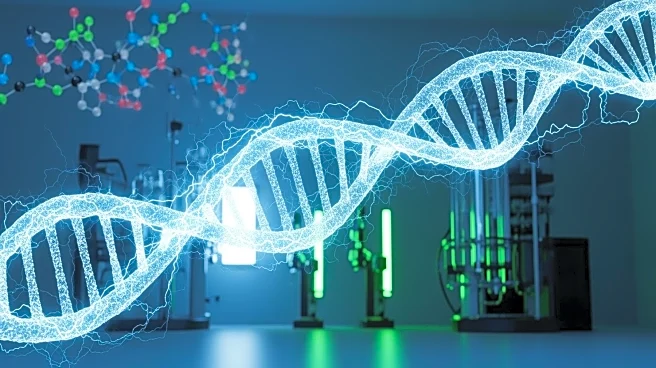What's Happening?
A biotech company, in collaboration with academic labs, has developed a new technique that uses DNA and short pulses of electricity to produce optimal antibodies. This method involves injecting DNA into muscle cells, which are then transformed into factories
producing broadly neutralizing antibodies. These antibodies have a high affinity for pathogens and their variants, potentially offering a robust defense against emerging infectious diseases. The clinical trial results indicate that while there were adverse reactions such as muscle pain and skin reddening, the technique holds promise for rapid response to future health threats.
Why It's Important?
The development of this technique is significant as it addresses the challenge of keeping up with rapidly spreading infectious diseases in the modern world. By enabling the production of broadly neutralizing antibodies, this method could enhance the ability to combat diseases like COVID-19 and Zika. The approach may revolutionize how vaccines and therapies are developed, potentially reducing the time needed to respond to new viral threats. However, public acceptance remains a hurdle, as concerns about genetic changes persist despite the stability of the DNA used in this method.
What's Next?
Further clinical trials and research are expected to refine the technique and address public concerns. The biotech company and its partners may focus on improving the delivery method to minimize adverse reactions and enhance efficacy. Additionally, efforts to educate the public about the safety and benefits of this approach could be crucial in gaining wider acceptance. Regulatory approval and commercial production are potential next steps if the technique proves successful in larger trials.
Beyond the Headlines
The ethical implications of using DNA and electricity in medical treatments may spark debates about genetic manipulation and long-term effects. The technique's success could lead to broader applications in personalized medicine, where treatments are tailored to individual genetic profiles. This development may also influence global health policies, encouraging investment in innovative biotech solutions to preemptively tackle future pandemics.















